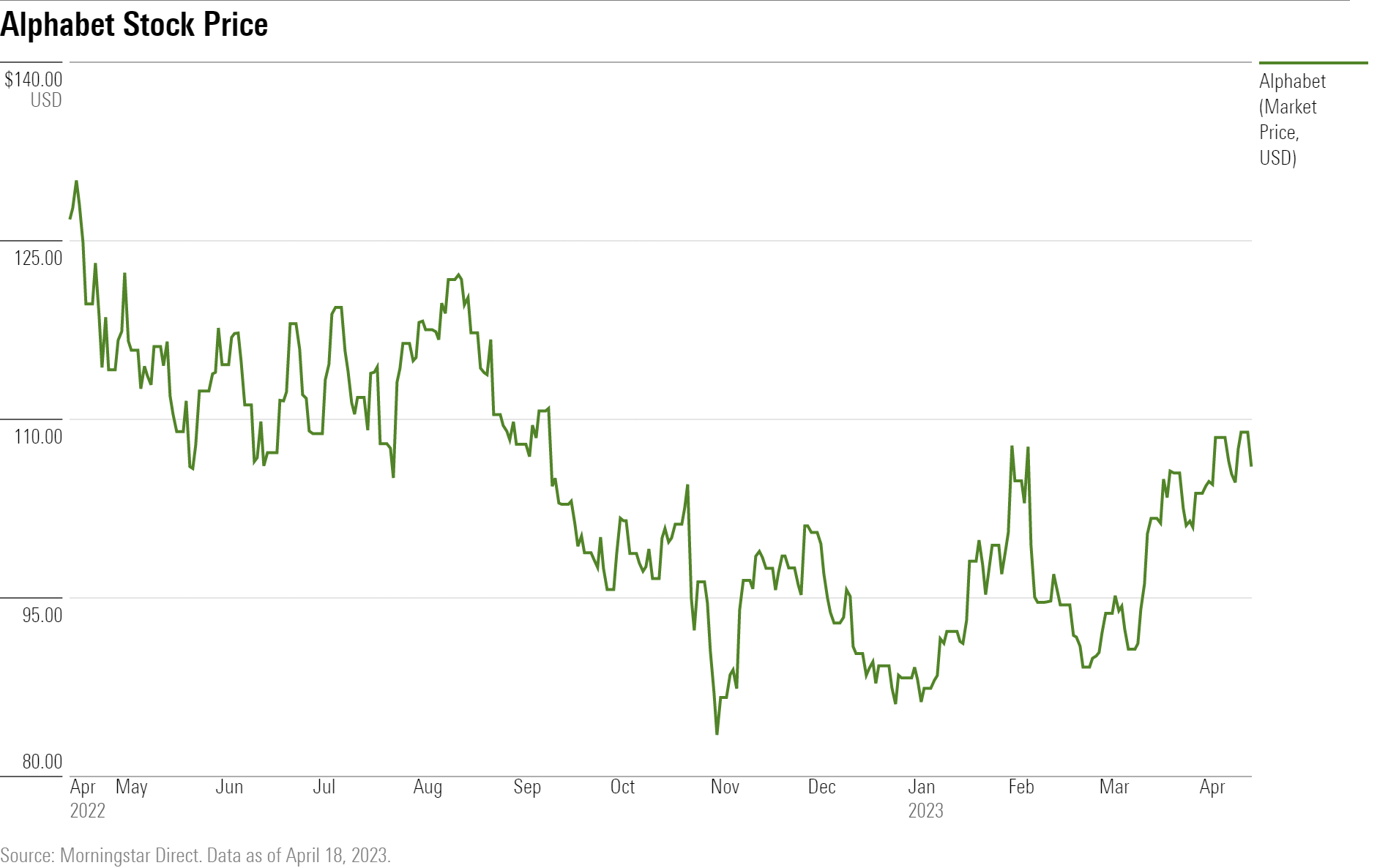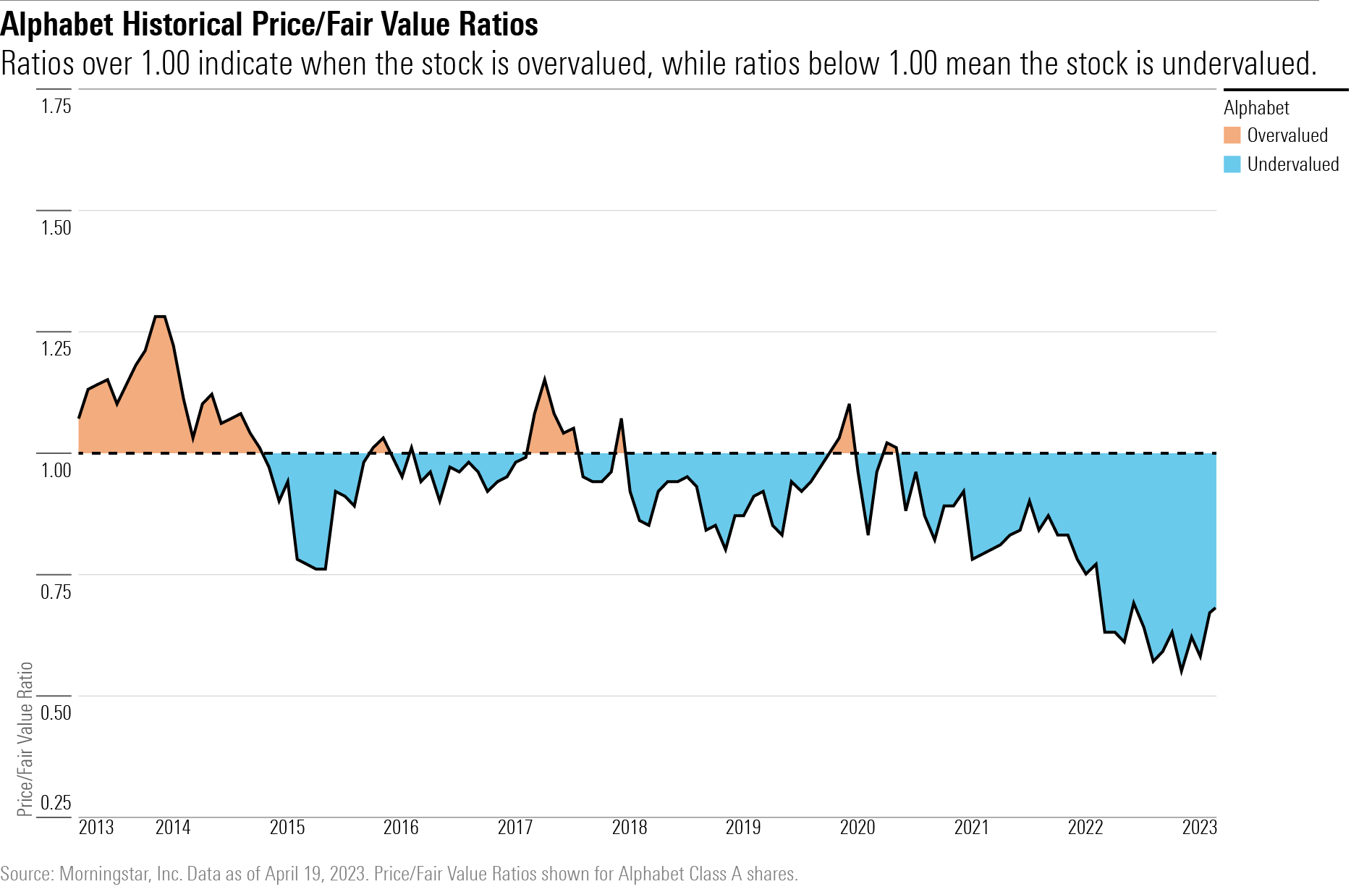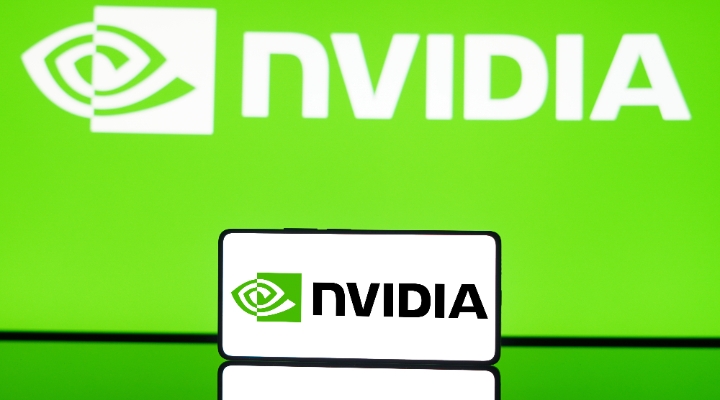
Google parent company Alphabet [GOOGL] is scheduled to release its first quarter earnings report on April 25, after the close of trading. Here’s Morningstar’s take on what to watch for in earnings and Alphabet’s stock
Key Morningstar Metrics for GOOGL
• Fair Value Estimate: $154.00
• Star Rating: 4-Stars
• Economic Moat Rating: Wide
• Uncertainty Rating: High
What to Watch for in Alphabet’s Quarterly Earnings
1) We would focus mostly on advertising revenue growth in search and YouTube in Alphabet’s earnings results.
a) For search, we'd like to see whether the continuing macro uncertainty is having an impact on advertisers. Recent first quarter results from ad-holding firms Omnicom and Publicis and their full-year outlook indicate that advertisers appear to be standing by their ad spending commitments for this year.
b) In addition, Google’s search results could show whether the release of ChatGPT late last year and Microsoft’s chat on Bing (using the ChatGPT technology) last month had or will have an effect on that business in the future.
c) Further, we would like the firm to provide more color regarding its search AI strategy, as with AI features such as the limited-release Bard search revenue could be cannibalised. Plus, many of the overall AI features could face many legal and regulatory questions and/or risks.
d) On the YouTube front, while we expect revenue growth to be driven mainly by direct response ads, we look for more color about contributions from broad-based campaigns, which could be an indicator of advertisers’ sentiment about the economy for the rest of the year.
2) Regarding Google’s cloud segment in the earnings report, we will be focusing not only on its progress toward reaching adjusted EBITDA profitability (which we expect will take place in 2024), but also on whether the collapse of Silicon Valley Bank, which likely damaged the health of some startups and other technology clients, could affect cloud revenue growth for the rest of this year. If access to capital for some of those firms is affected, we would assume a gradual recovery in venture capital financing in 2024 and beyond.
3) Regarding the bottom line, we’d like to have a better sense of the firm’s traffic acquisition costs and whether they will be increasing significantly as the firm is likely renegotiating with Apple. In addition, there have been reports that after 12 years, Samsung is considering changing the default search engine on its devices from Google to Bing. If true, Google may be forced to pay more than the around $3 billion that it has been paying Samsung at least since 2017.

Fair Value Estimate for Alphabet
Our fair value estimate is $154 per share. We expect advertising revenue to remain more than 70% of Alphabet’s total revenue, driven by continuing growth in overall digital ad spending, more specifically in search, video, and mobile.
We believe Google will continue to gain traction in the cloud market (20% annual revenue growth through 2027). We model 51% and 54% gross margins for 2023 and 2024, respectively, compared with 55% in 2022, owing to the higher cost of YouTube content and higher head count.
We expect the growth of other operating expenses to decelerate in the coming years mainly because of much slower growth in head count, helping offset gross margin pressure. As a result, we expect the operating margin to increase to above 25% in 2027 from 21% in 2023.
With a 4-star rating, we believe Alphabet’s stock is undervalued compared with our fair value estimate.

Economic Moat Rating
We assign Alphabet a wide moat rating, thanks to durable competitive advantages derived from the company’s intangible assets, as well as the network effect. We believe Alphabet holds significant intangible assets related to overall technological expertise in search algorithms and machine learning, as well as access to and accumulation of data that is deemed valuable to advertisers.
Google has the world’s most widely-used search engine, and such a large and growing user base has created a network difficult to replicate, in our view. We also believe that Google’s brand is a significant asset; "Google it" has become eponymous with searching, and regardless of actual technological competency, the firm’s search engine is perceived as being the most advanced in the industry. Based initially on its technology, Google has successfully increased its users’ dependence on its products to keep transforming the usage of those products into something habitual.
In our opinion, Alphabet’s network effects are derived mainly through its Google products such as Search, Android, Maps, Gmail, YouTube, and more. With more usage, more data about users’ behavioural interests is gathered, analysed, and applied to rank ads more accurately based on their relevance and click-through rate probability. Businesses and advertisers pay Google to place their search ads, targeted based on users’ locations and previous searches, within Maps' search results list and directly on the map.
Read more about Alphabet’s moat rating.
Risk and Uncertainty
Our Morningstar Uncertainty Rating for Alphabet is High, primarily the result of high dependency on continuing online advertising growth. The firm’s high dependence on user behavior data also represents an environmental, social, and governance risk, mainly because of the risk of data privacy and security, which could affect not only Google’s advertising business but also users’ trust in the firm’s products as data can be misused.
Google faces antitrust pressure and various claims and investigations brought by different companies and regulatory agencies regarding search bias and its overall market dominance in online advertising.
Read more about Alphabet’s risk and uncertainty.
GOOGL Bulls Say...
As the number of online users and usage increase, so will digital ad spending, which Google will remain one of the main beneficiaries of.
Android’s dominant global market share of smartphones leaves Google well positioned to continue generating top-line growth as search traffic shifts from desktop to mobile.
The significant cash generated from Google’s search business allows Alphabet to remain focused on innovation and the long-term growth opportunities that new areas present.
GOOGL Bears Say...
There is little revenue diversification within Alphabet, as it remains heavily dependent on Google and the state of the search ad space.
Alphabet is allocating too much capital toward high-risk bets that face a very low probability of generating returns.
Google’s dominant position in online search is not maintainable, as more companies and regulatory agencies are contesting the methods through which the company has been extending its leadership.
Get access to full Morningstar stock analyst reports, along with data and tools to manage your portfolio through Morningstar Investor. Learn more and start a seven-day free trial today.




























